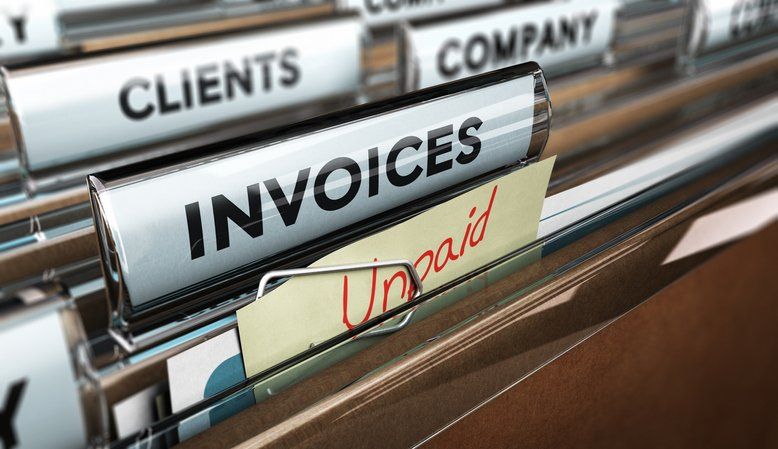A collection attorney
can help collect payments from customers, but may not be your first step.
When a client refuses to pay or pays late, it has a significant impact on your business’s cash flow, and healthy cash flow is one of the most essential elements of any successful business. In fact, a
U.S. Bank
study found that 82% of failed businesses said that cash flow problems were a factor in the failure of their business.
Getting paid on time is a challenge for just about every business. In fact, one in ten invoices are paid late, according to
GlobeNewswire, and companies spend an average of 15 days per year chasing late payments. That is a significant amount of time that could be spent doing something more productive.
Collecting payments from customers can be a balancing act between getting the money you are due and maintaining good customer relationships. Therefore, it’s important to remember that there are many reasons customers may not pay on time: they may have lost the invoice, forgot to pay it, or maybe they don’t have the funds to pay it.
Regardless of the reason, late and non-payments can harm the health of your business. Fortunately, there are steps you can take to ensure that they 1) get paid and 2) get paid on time.
Preventative Measures
Avoiding late or non-payment should always be your first goal. If you have the right systems in place and communicate pertinent payment terms with your customers before starting a project, you’ll save yourself a lot of time down the road.
First, have payment terms in place and make sure your customers understand those terms before starting any project. They should know how much they will be expected to pay, if your quote is an estimate or a final cost, when they are expected to pay both deposits and final payments, how they can pay, and if there are any consequences to late payments, such as late fees.
Depending on the type of project, one way to minimize risk is to require a deposit of 25 to 50% of the total cost of a project (or even full payment) before starting work. Another option is offering a discount for early payment to incentivize customers to pay early or at least on time.
Don’t wait to send invoices. Send invoices as soon as a project is completed.
Make it easy for customers to pay. The more options you offer, the easier it is for them to pay you on time. And with all the technology available today, customers expect those options. Consider accepting credit cards, ACH transfers, checks by phone, or payments through PayPal.
Have a system for tracking payments. Depending on the volume of sales, your system could be as simple as reviewing your receivables once a week and developing a system to follow up on late payments. Or you can use technology to track payments and automatically send alerts when a payment is past due.
If Preventative Measures Don't Work
As we said earlier, there can be several reasons why a customer’s payment is overdue. Start by assuming it’s something innocuous, such as forgetting to make a payment or misplacing an invoice.
As soon as you notice a payment is late, send a polite and professional email, making sure they received the original invoice, letting them know the payment is past due and reminding them how they can pay it. Attach the original invoice to the email. You may choose to send a series of emails – one after three days, then one week, then 15 days, etc. - or go to the next step – a phone call.
When you call your customer remember that maintaining good customer relationships and your business’s reputation is essential, so be polite. Try to speak directly with the customer. Ask what is preventing them from making the payment and try to work out a solution. You may want to try to get a credit card payment over the phone. At the very least, have a next step, such as an agreed-upon date that they will get the payment to you or perhaps a partial payment to start.
If that doesn’t work, try speaking with someone in the billing department. They may have more information about the status of your invoice and any issues delaying the payment.
If that doesn’t work and you haven’t already done so, stop all work for that customer. It could incentivize them to pay you to keep projects moving forward and keep you from losing more of your time and money.
Legal Action
If these steps don’t result in payment, you may have to consider seeking legal action. Sometimes a formal demand letter from an attorney’s office – a certified written letter that threatens legal action if the debt is not paid - is enough to get a customer to pay.
If that doesn’t work, you can consider taking it to small claims court, which is relatively quick and inexpensive. In Pennsylvania, if the amount due is $12,000 or less, you can take your customer to small claims court.
If the amount is above $12,000 and less than $50,000, you can file suit in the Court of Common Pleas and attempt arbitration. Arbitration is overseen by a panel of three local attorneys rather than a judge. It is less formal than court, but the arbitrator’s judgment is enforceable. This approach tends to be relatively quick and inexpensive.
An experienced attorney at Bingaman Hess can help you determine what course of action may be best in your particular situation. Please contact us at
610.374.8377
or
find us online.










